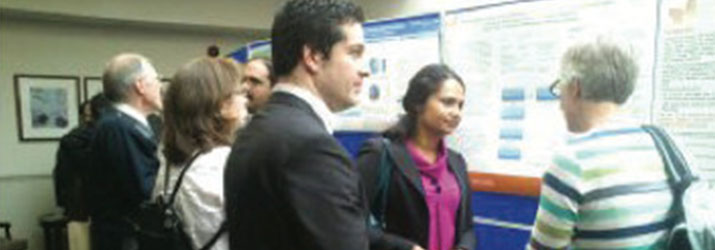
The Major Trauma Centre (MTC) initiative has thrust rehabilitation into the limelight and it was the focus of this year’s meeting. The identification of patients who need specialist services will be a particular responsibility of Rehabilitation Medicine (RM) specialists.
Presentations from both Manchester and London described a cultural change whereby RM specialists were forming an integral part of acute trauma teams and moving patients quickly on to appropriate rehabilitation facilities. To do this well services need to be available on the acute site and RM physicians need to acquire new skills, particularly in musculoskeletal conditions. There was extensive discussion on the requirements for ‘Rehabilitation Prescription’. Well organised MTCs are securing this not only for patients with an Injury Severity Score (ISS) of > 15 but also for > 8 (three fractured ribs) thus securing more ‘best practice tariffs’. These monies will have to be invested in enhanced services for this not just to be a paper exercise.
The conference brought unfamiliar specialisms to the BSRM. Mr Michael Fox from Stanmore described surgical approaches to brachial plexus injury and Dr Chris Lowe from Poole Hospital described continuing problems after Critical Care. Survival is reduced for 15 years after ARDS and this is determined principally by weakness. This affects almost 50% of patients and, although not completely understood, is detectable as a reduced 6 minute walking distance for at least 5 years afterwards. There are recommendations for early mobilisation but little supporting evidence as yet.
Public awareness of rehabilitation has been enhanced by the work amongst veterans at Headley Court. Prof Greenberg, visiting professor of psychiatry,gave a robust defence of the psychological management of British service personnel. Despite, or maybe because of, fewer mental health personnel, the rate of PTSD is significantly less than in the US army and, although peaking at 6% at 4 years, appears to decrease subsequently. The incidence of PTSD is less for the majority of combatants who describe their leadership as good or very good or who have fewer stresses at home. Early (less than 4 year) army discharges or reservists are more at risk.There is no significant increase in suicide or imprisonment but rates of alcohol abuse are frighteningly high: up to 25%. Spiritual care was introduced into a BSRM meeting by Dr Collicut, both a neuropsychologist and an Anglican priest. She distinguished religion from spirituality by describing three axes of Transcendence, Meaning and The Sacred. Traumatised patients face keen questions of meaning (why me?) but often because of cognitive and physical problems are less able spiritually to address them. Spiritual help cannot be left to faith practitioners but crosses professional boundaries. She suggested focusing on Shalom (wholeness/peace) through supporting dignity and identity, conveying hope, and expressing solidarity and loving kindness. The conference finished with a symposium on the definitions and management of minor brain injury. We were encouraged to move beyond the dualisms of ‘is it structural or emotional?’, and address the combined problems of patients using a number of treatments that can be practised in the clinic. In all, a broad and satisfying conference that demonstrated to visitors and members alike the increasing range of the specialty.
The next conference, from 7th – 9th November 2012, will be hosted by colleagues in Belfast and will include presentations on teleneurology, assistive technology, transcranial magnetic stimulation and the transitional rehabilitation of children with cerebral palsy.